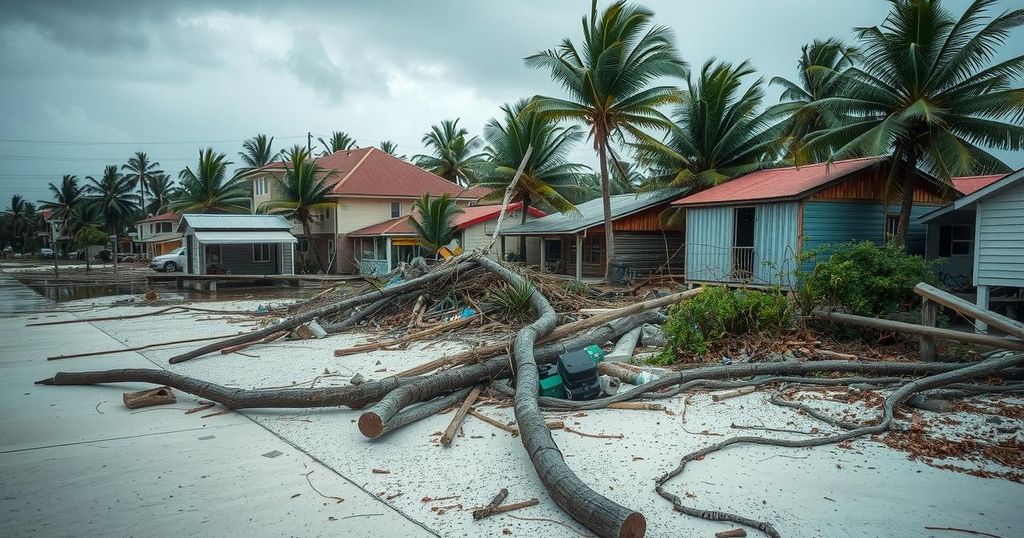Impact of Tropical Cyclone Chido on Mayotte: A Severe Humanitarian Crisis
Tropical Cyclone Chido, the strongest storm in over 90 years to hit Mayotte, caused at least 22 deaths and 1,500 injuries by December 18, 2024. The cyclone impacted critical infrastructure and amplified pre-existing housing vulnerabilities, affecting about one-third of Mayotte’s 320,000 residents.
Tropical Depression Chido formed on December 5, 2024, in the southeast Indian Ocean and strengthened into a moderate tropical storm by December 9, achieving wind speeds of 70 km/h. By December 12, it was classified as a Category 4 cyclone on the Saffir-Simpson scale, with maximum winds of 250 km/h. Chido made landfall in Mayotte early on December 14, producing strong winds of 225 km/h.
As of December 18, reports indicate at least 22 fatalities and approximately 1,500 injuries, with that number anticipated to increase as search and rescue operations continue, given that many individuals remain unaccounted for. Tropical Cyclone Chido has caused unprecedented devastation in Mayotte, marking it as the most powerful storm to strike the island in over ninety years. Significant infrastructure damage has been inflicted on hospitals, the airport, and transportation networks, resulting in widespread disruptions to essential services such as electricity, water supply, and communication systems.
Before the arrival of the cyclone, roughly 40% of the housing in Mayotte was already classified as being in precarious condition, a situation exacerbated by the storm. This precarious living condition affects approximately 100,000 residents, which represents about one-third of Mayotte’s population. While official estimates place the population at 320,000, authorities suggest that it may be as high as 520,000, inclusive of individuals residing irregularly, predominantly from the nearby nation of Comoros.
Tropical Cyclone Chido represents an unprecedented weather event for Mayotte, highlighting vulnerabilities within the island’s infrastructure and housing sectors. The cyclone underscores the broader implications of climate change and intensifying storm activity in vulnerable regions, putting immense pressure on already strained resources and emergency response capabilities. As the national and international community mobilizes for relief efforts, challenges surrounding recovery, rebuilding, and long-term resilience emerge prominently into focus.
In summary, Tropical Cyclone Chido has led to severe destruction in Mayotte, resulting in loss of life, significant injuries, and extensive damage to critical infrastructure. The precarious housing conditions faced by a substantial portion of the population significantly worsened the impacts of the cyclone. Moving forward, recovery efforts will be paramount, alongside strategic planning to bolster the island’s resilience against future disasters.
Original Source: reliefweb.int




Post Comment